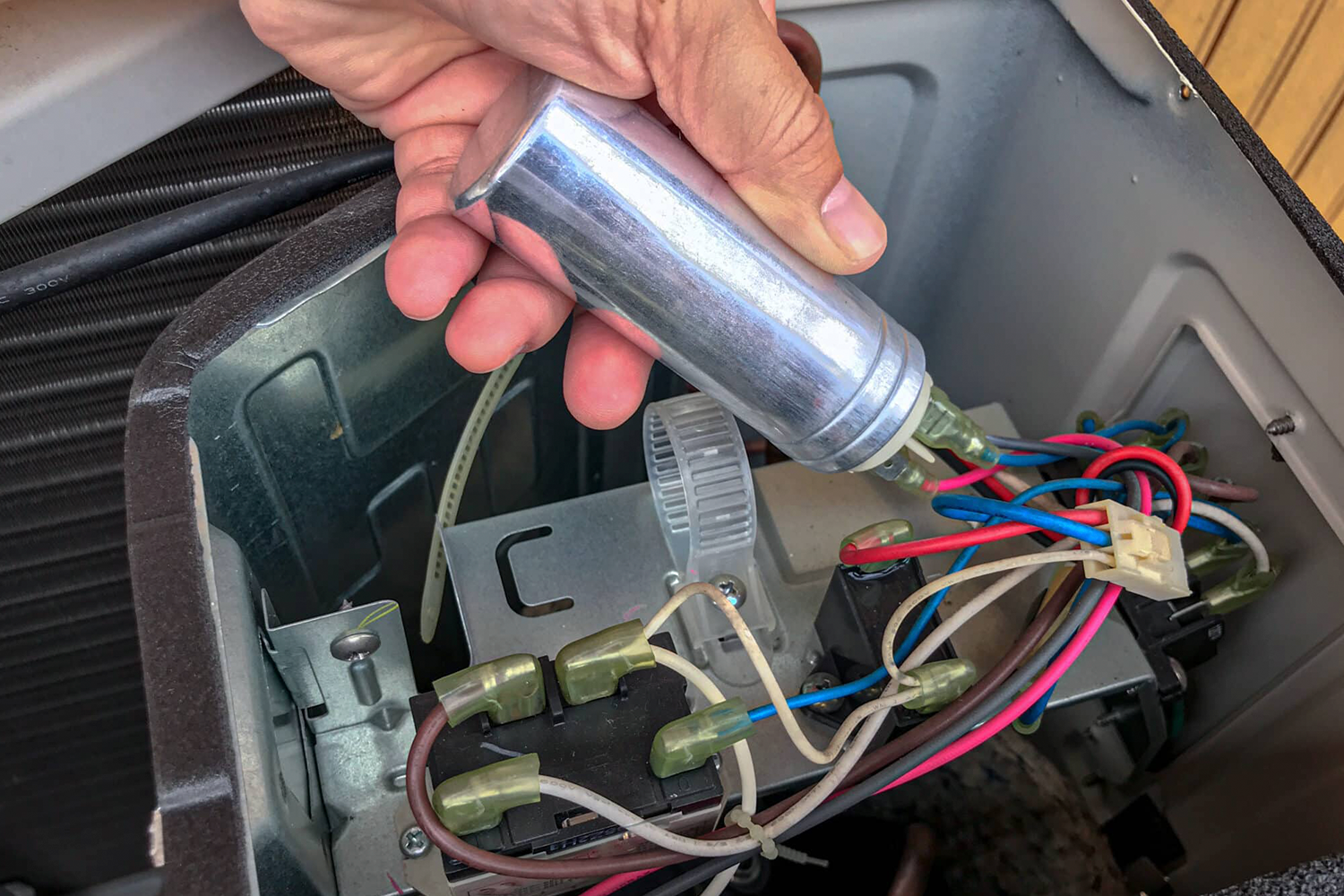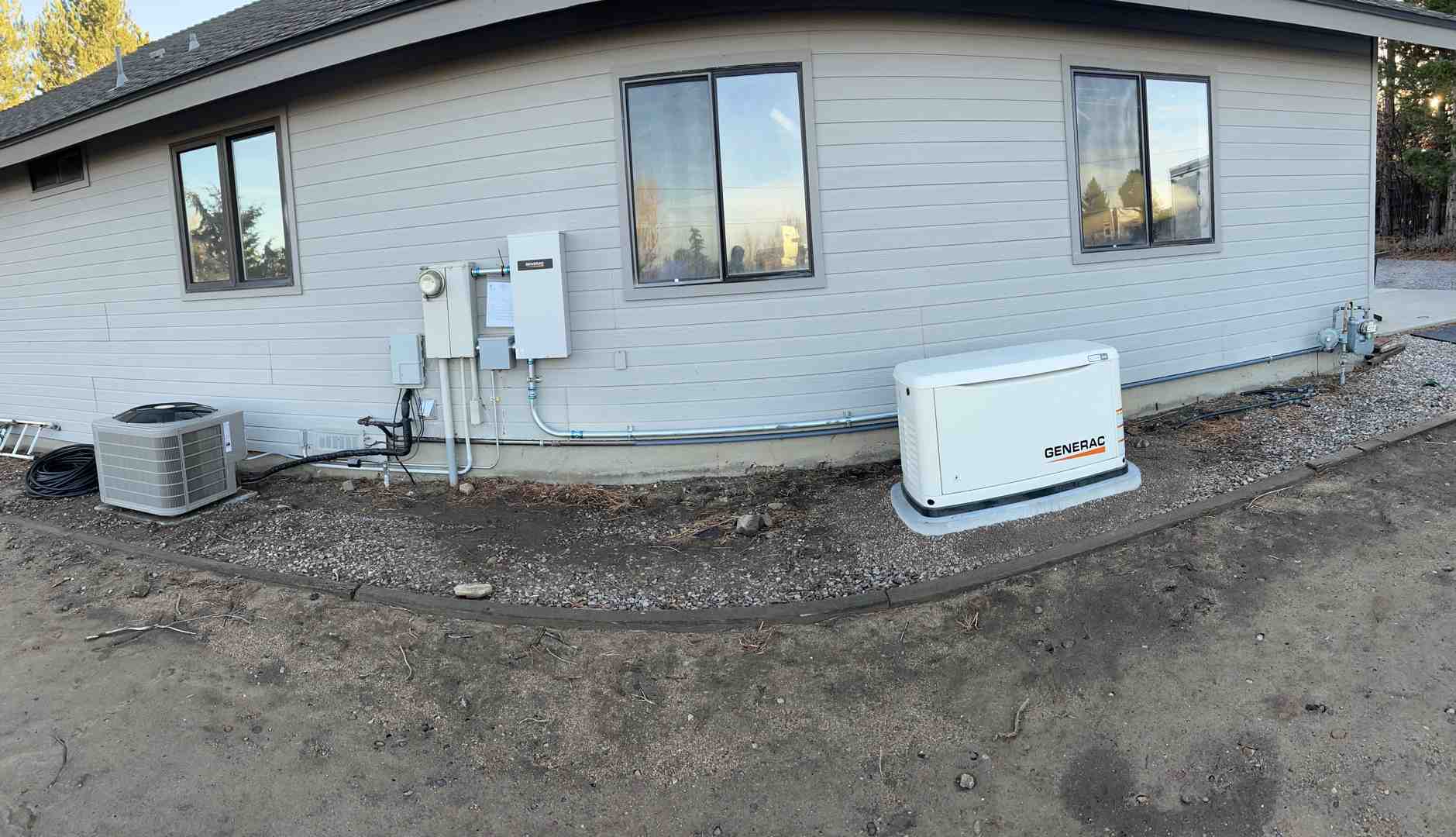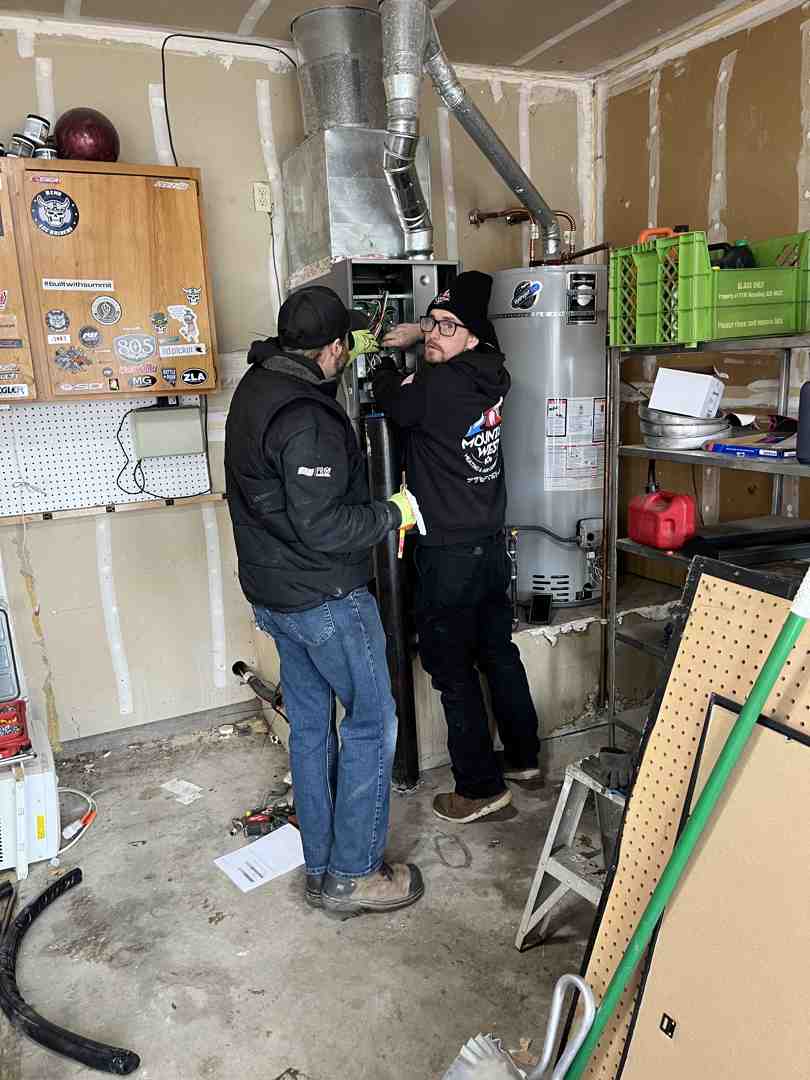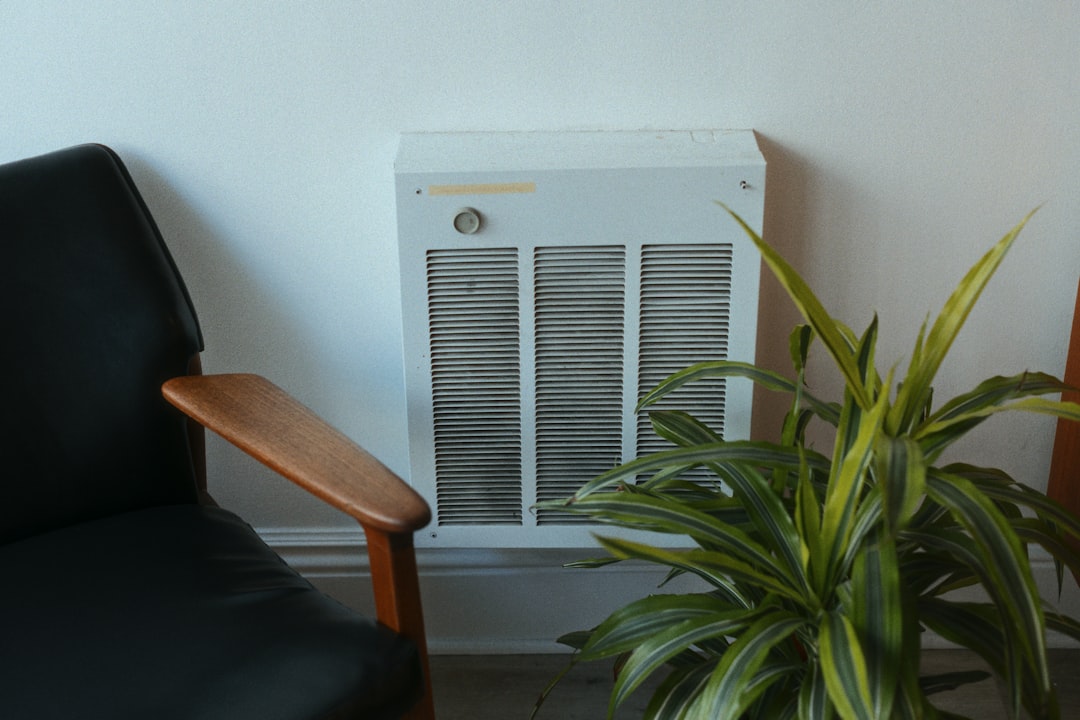AC capacitor replacement is one of the most common, and critical, repairs in any residential HVAC system.
Your air conditioner's capacitor is a key part that helps your AC start and run. Many homeowners don't think about this component until their system stops working.
You should replace your AC capacitor if it shows signs of failure like swelling, if a multimeter test shows it's below 75% of its rated capacity, or as a preventive measure every 5 years.
We often get calls from customers whose AC suddenly stopped working on a hot day. In many cases, a failed capacitor is the culprit. Think of the capacitor like a battery that gives your AC motor the extra power it needs to start up. When it weakens or fails, your system might struggle to turn on or run properly.
Replacing a capacitor before it completely fails is always best practice. This small part typically costs much less to replace than dealing with the damage that can happen when your system stops working unexpectedly. Regular maintenance checks can catch weakening capacitors before they cause bigger problems.
In this guide, we’ll show you how to recognize the signs of a faulty AC capacitor, how to test it, and why replacing it on time can save you from bigger, more expensive repairs.
Here's what you need to know:
- What is an AC capacitor and how it works in your HVAC system
- Signs you need to replace your ac capacitor
- When to replace your ac capacitor
- Best practices for safe and effective ac capacitor replacement
Good reading!
What is an AC capacitor and how it works in your HVAC system
AC capacitors are crucial components that help your air conditioning system run properly. These electrical devices store and release energy needed for your AC to start up and operate efficiently.
What is an AC capacitor?
An AC capacitor is an electrical component that stores energy in the form of an electric field. Think of it as a temporary battery that provides the extra power needed for your air conditioner's motors to start and run. Capacitors are measured in microfarads (μF), which indicates how much electrical charge they can store.
Unlike batteries that produce their own electricity, capacitors store electricity from your home's power supply and release it when needed. They're typically cylindrical in shape and located inside the condensing unit of your air conditioner.
AC capacitors are essential because air conditioners require a significant amount of power to start up - more than what your home's standard electrical system can provide instantly. Without a functioning capacitor, your AC might run but won't cool your home effectively.
Types of AC capacitors: start, run, and dual
There are three main types of capacitors found in air conditioning systems:
Start Capacitors: These provide the initial burst of energy needed to start the compressor motor. They work for just a few seconds during startup and then disconnect once the motor reaches about 75% of its operating speed.
Run Capacitors: These remain in the circuit continuously during operation. They help maintain efficient motor operation by improving the power factor and keeping the motor running smoothly.
Dual Capacitors: These combine both start and run functions in one unit. They have three terminals and can serve multiple motors simultaneously, such as the compressor and fan motors.
Most modern residential air conditioners use dual capacitors to save space and reduce costs. Heat pump systems may use specialized capacitors designed for their specific operational needs.
How AC capacitors support startup and motor performance
Capacitors work by creating a phase shift in the electrical current that powers your AC motors. This phase shift generates a rotating magnetic field that helps the motors turn properly and efficiently.
When you turn on your air conditioner, here's what happens:
- The start capacitor provides a powerful jolt of electricity to overcome inertia
- The motor begins spinning
- Once running, the run capacitor helps maintain optimal motor performance
Without this assistance, your AC motor would draw too much current when starting, potentially tripping circuit breakers or burning out components.
Capacitors also help balance the electrical load across your HVAC system. This improves energy efficiency and extends the life of your motors. They act as electrical "shock absorbers," smoothing out power fluctuations that could damage sensitive components.
In heat pumps and more complex systems, multiple capacitors might work together to control different functions simultaneously.
Signs you need to replace your ac capacitor
Recognizing the warning signs of a failing AC capacitor can save you from unexpected breakdowns and costly repairs. Several symptoms can alert you to potential capacitor issues before they lead to complete system failure.
Warning signs of a faulty AC capacitor
A bad AC capacitor often shows clear warning signs before it completely fails. If your air conditioner takes longer than usual to start up, this could indicate your capacitor is struggling to provide the necessary electrical charge.
Strange noises coming from your outdoor unit are another common symptom. You might hear humming or clicking sounds when the compressor or fan motor attempts to start but can't get enough power from the failing capacitor.
Your AC may also shut off unexpectedly or fail to maintain consistent cooling. This happens because the capacitor can't provide steady power to the compressor or fan motors.
Visual signs include a visibly bulging or leaking capacitor. If you notice an oily substance around the capacitor or the top appears swollen, it's time for a replacement.
How to test an AC capacitor using a multimeter
Testing an AC capacitor requires some technical knowledge and proper tools. A multimeter is the most reliable tool for this job. To test your capacitor, first turn off power to your AC unit at the circuit breaker for safety.
Carefully discharge the capacitor by connecting its terminals with an insulated screwdriver. Then use your multimeter set to capacitance mode to test the microfarad reading.
Compare your reading to the capacitor's rating (printed on its side). If the reading is more than 10% below the rated value, it's time for replacement.
The condition of your system can also help diagnose capacitor issues. If the fan blade doesn't spin freely or the compressor struggles to run, your capacitor might be the culprit.
Risks of ignoring capacitor issues
Neglecting to replace a failing capacitor can lead to more serious problems. The strain on your system's motors increases when they don't receive proper starting power.
This extra strain can damage motor windings in both the condenser fan motor and compressor, leading to much more expensive repairs. What might have been a $100-200 capacitor replacement could become a $500-1,000+ motor replacement.
Energy bills typically increase when your AC works harder due to a bad capacitor. Your system runs longer cycles and draws more power trying to compensate.
System overheating becomes a serious risk as well. When motors can't start properly, they generate excess heat that can damage other components in the air handler and outdoor unit.
We recommend including capacitor checks in your regular maintenance plan to catch these issues early.
When to replace your ac capacitor
AC capacitors play a vital role in your cooling system but won't last forever. Knowing the right time to replace them can prevent unexpected breakdowns and extend your unit's life.
Top signs it’s time for an AC capacitor replacement
Testing your capacitor annually is a smart preventive maintenance practice. If your multimeter shows a reading below 5% of the rated capacity, replacement is necessary. For example, a 40-microfarad capacitor reading below 38 indicates it's failing.
Visual signs are equally important indicators. A bulging or swollen capacitor needs immediate replacement, even if your AC still runs. This physical deformation is a clear warning sign of internal damage.
Age is another crucial factor. Capacitors in residential HVAC systems typically last around 10 years, though their lifespan can range from 5 to 20 years depending on usage, temperature, and maintenance practice, according to Angi.
We recommend having your HVAC technician check the capacitor during your annual maintenance visit.
Strange noises like humming or clicking from your outdoor unit often point to capacitor issues. Similarly, if your AC struggles to start or runs inconsistently, the capacitor may be failing.
Environmental factors affecting capacitor lifespan
Heat exposure significantly impacts capacitor longevity. Units in direct sunlight or hot climates typically experience shorter capacitor lifespans. Consider adding shade over your outdoor unit to reduce heat stress.
Power quality in your area matters too. Frequent power surges or voltage fluctuations can damage capacitors over time. Installing a surge protector for your HVAC system offers valuable protection against these electrical events.
Humidity and moisture create corrosion risks. Capacitors in coastal areas or regions with high humidity often need more frequent replacement. Regular inspection can catch corrosion before it causes complete failure.
The capacitor's voltage rating should match your system's requirements. Using an incorrectly rated capacitor leads to premature failure. We always recommend using exact replacement parts that match the original specifications.
Best practices for safe and effective ac capacitor replacement
Replacing an AC capacitor requires careful attention to safety and proper component selection. When done correctly, this maintenance task can restore your air conditioner's performance and extend its lifespan.
How to choose the correct AC capacitor replacement
When selecting a new capacitor, matching the specifications is crucial. Look for a replacement with the same microfarad (μF) rating and voltage rating as your original unit. The μF rating must be within ±5% of the specified value for optimal performance.
Most residential AC units use capacitors with voltage ratings of 370V or 440V. Always choose a voltage rating equal to or higher than the original - never lower, as this creates a safety hazard.
Check the physical dimensions and terminal configuration too. Capacitors come in various shapes and sizes, and the replacement should fit properly in your unit's compartment.
We recommend taking a photo of the old capacitor before removal to document its connections. This helps ensure correct wiring during installation.
Professional vs. DIY capacitor replacement
While capacitor replacement seems straightforward, we strongly advise hiring an HVAC technician unless you have electrical experience. Capacitors store electrical charge even when power is disconnected, creating shock risks.
Professional technicians have:
- Proper safety equipment
- Experience identifying failing capacitors
- Tools to discharge capacitors safely
- Knowledge to diagnose underlying issues
If attempting DIY replacement, follow these safety steps:
- Turn off all power to the unit at the breaker
- Wait at least 30 minutes for discharge
- Use insulated tools
- Verify power is off with a multimeter
Many home improvement stores carry replacement capacitors, but verified experts on services like JustAnswer can help confirm you're selecting the correct part. Professional installation typically costs $150-250 - often worth the investment for safety and peace of mind.
Conclusion
A faulty AC capacitor might seem like a small issue, but ignoring it can lead to major system failures and higher repair bills. This single component is responsible for giving your compressor and fan motors the electrical boost they need to run efficiently, when it fails, everything else struggles to keep up.
By learning to spot the early signs of failure, testing the capacitor regularly, and replacing it before it reaches a critical state, you can keep your air conditioning system running smoothly and avoid costly downtime during peak seasons.
If you suspect a capacitor issue or want to include it in your next maintenance visit, Mountain West is here to help with fast, expert AC capacitor replacement that keeps your system safe, cool, and reliable.








